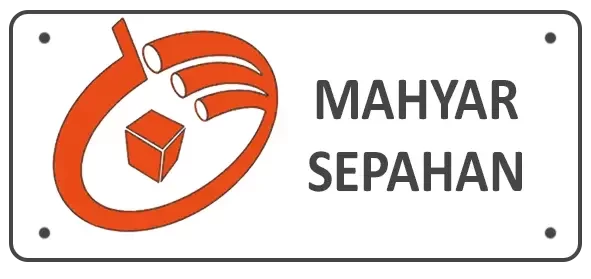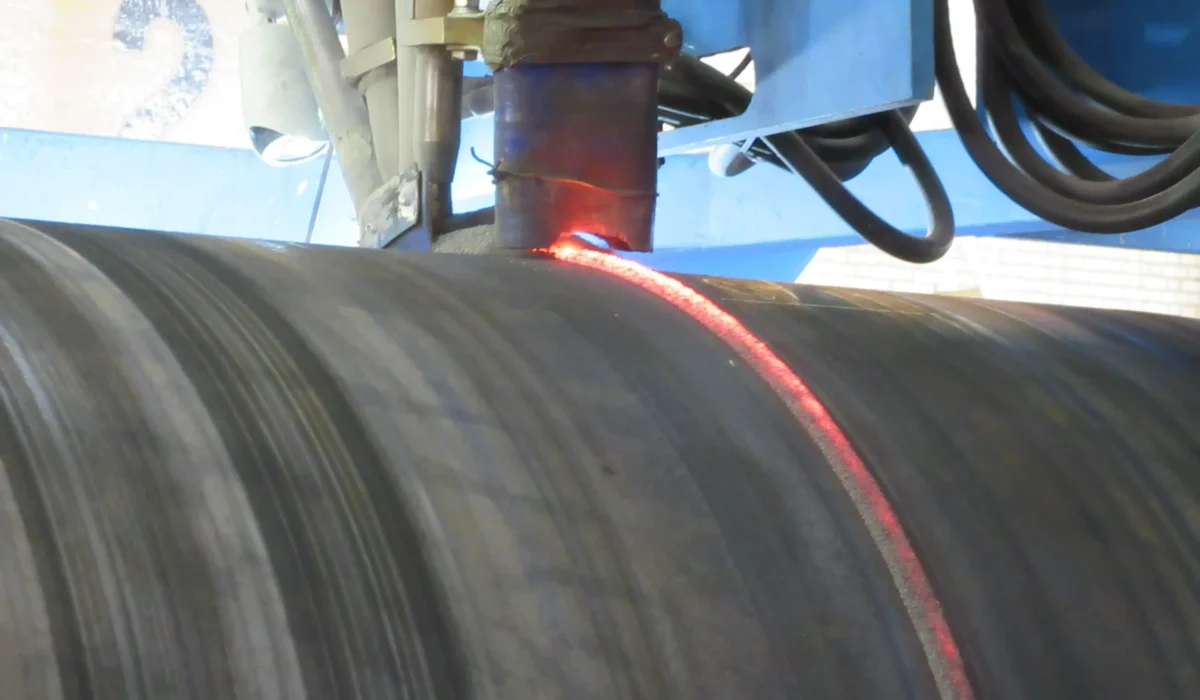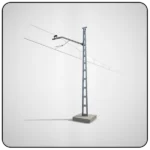Introduction
Water pipes are manufactured from a variety of materials, each with its own unique properties and applications. Welded steel pipes are one such type that, due to their distinctive characteristics, are used in numerous applications. This article compares welded steel pipes to other types of water pipes, such as ductile iron (DI) pipes, polyethylene (PE) pipes, and polyvinyl chloride (PVC) pipes.
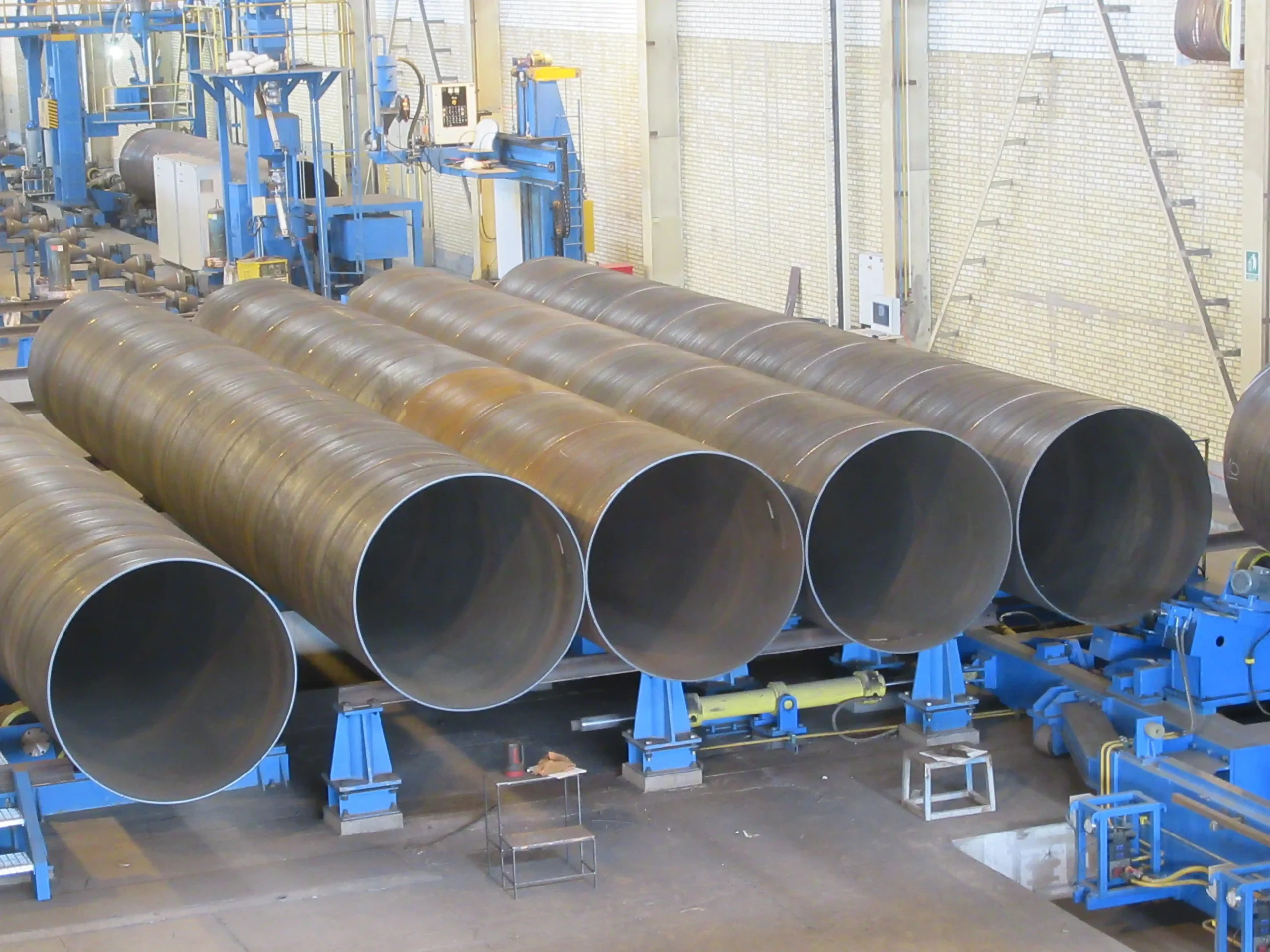
Welded Steel Pipes
Content list
Advantages
- High mechanical strength: Welded steel pipes offer superior resistance to pressure and impact, making them suitable for water transfer in demanding conditions and at high pressures.
- Weldability: These pipes can be easily welded and joined together in various lengths.
- Resistance to high temperatures: Welded steel pipes exhibit good resistance to high temperatures, making them suitable for industrial applications.
Disadvantages
- Heavy weight: Due to the high weight of steel, these pipes are heavier than polymeric pipes, which may make transportation and installation more difficult.
- Corrosion: Steel is susceptible to corrosion and may require protective coatings or regular maintenance.
- High cost: The production and installation costs of welded steel pipes are typically higher than those of polymeric pipes.
Ductile Iron (DI) Pipes
Advantages
- High corrosion resistance: Due to their specific chemical composition, DI pipes offer excellent resistance to corrosion.
- High mechanical strength: Similar to welded steel pipes, DI pipes have high resistance to pressure and impact.
- Long service life: Due to their high resistance to corrosion and abrasion, DI pipes have a longer service life.
Disadvantages
- Heavy weight: Like steel pipes, DI pipes are heavy and may be difficult to transport and install.
- High cost: The production and installation costs of DI pipes are also high.
Polyethylene (PE) Pipes
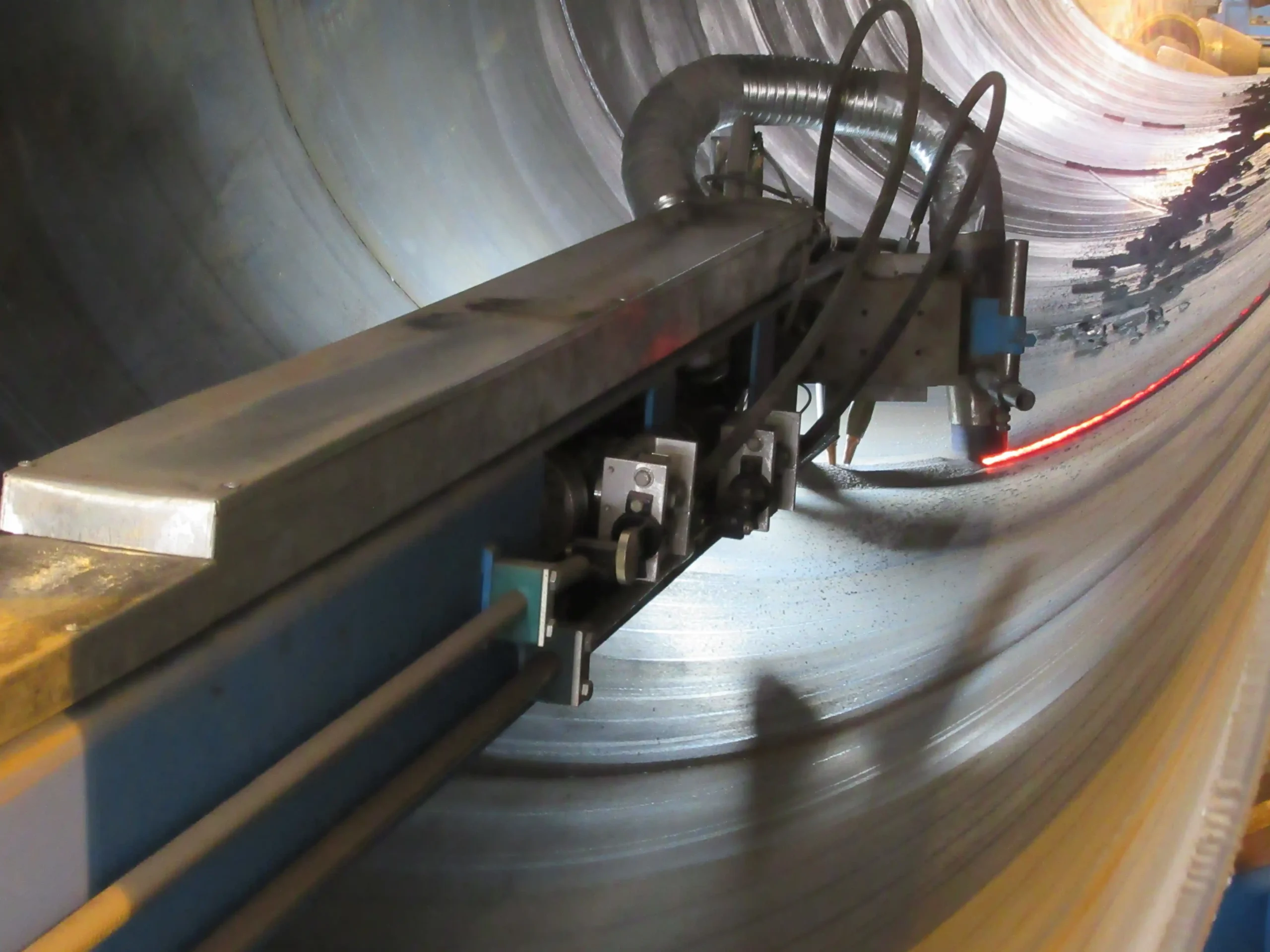
Impact of Welded Steel Pipes on Transported Water Quality
Introduction One of the most important issues in water transfer systems is the quality of water after passing through pipes. Welded steel pipes, due to their mechanical properties and high strength, are used in many water transfer systems. In this article, we will examine the impact of welded steel pipes on the quality of transported water.
Factors Affecting Water Quality in Steel Pipes
Corrosion One of the main problems with steel pipes is corrosion. Corrosion of steel can cause iron particles and other metal compounds to enter the water. This can change the color, taste, and odor of water, and may also affect the sanitary quality of water.Solutions:
- Protective coatings: The use of internal coatings such as epoxy, polyethylene, and cement can prevent direct contact of water with metal and reduce the risk of corrosion.
- Periodic maintenance: Performing periodic maintenance and inspections to identify and address corrosion problems can help maintain water quality.
Sedimentation Over time, mineral deposits may form inside steel pipes. These deposits can reduce the effective diameter of the pipe and increase resistance to water flow. Also, sediments can act as a breeding ground for microorganisms, which can affect water quality.Solutions:
- Periodic flushing: Periodic flushing of pipes using suitable chemicals can prevent the formation of deposits.
- Use of water treatment plants: Advanced water treatment plants can reduce the amount of sediment before water enters the pipes.
Chemical Reactions
Steel metal may react with chemicals present in water. These reactions can lead to the production of unwanted compounds that affect water quality.Solutions:
- Control of incoming water quality: Ensuring the high quality of water entering the piping system can prevent unwanted reactions.
- Use of anti-reaction coatings: Internal coatings of pipes can prevent direct contact of water with metal and reduce chemical reactions.
Applications of Welded and Spiral Steel Pipes in Various Industries
Welded and spiral steel pipes are used in various industries due to their specific properties. These pipes are widely used in many industrial and construction projects due to their high strength, resistance to pressure, and weldability. This article examines the applications of these pipes in various industries.
- Oil and Gas Industry:
- Transportation and distribution of oil and gas: Welded and spiral steel pipes are used for transporting oil and gas in pipelines due to their high resistance to pressure and corrosion.
- Spiral pipes are especially used in natural gas pipelines that require long lengths.
- Petrochemical Industry:
- Transportation of chemicals: Welded steel pipes are used to transport corrosive and hazardous chemicals in the petrochemical industry. These pipes have high corrosion resistance due to internal protective coatings.
- Construction Industry:
- Ventilation and heating systems: Spiral pipes are used in HVAC systems for air transportation. These pipes have a spiral structure, which makes air flow more efficient and with less pressure.
- Welded steel pipes are also used in central heating systems and hot water transfer.
- Water and Wastewater Industry:
- Wastewater transportation: Welded and spiral steel pipes are used for transporting wastewater in large urban and industrial systems due to their high mechanical strength and ability to withstand pressure.
- Marine Industries:
- Construction of oil and gas platforms: Spiral steel pipes are used in the construction of oil and gas platforms installed in the seas. These pipes are suitable for this application due to their high resistance to harsh marine conditions and corrosion caused by saltwater.
- Mining Industries:
- Transportation of minerals: Welded steel pipes are used to transport minerals such as coal, iron ore, and other minerals from mines to processing plants.
- Energy Industry:
- Power transmission lines: Welded and spiral steel pipes are used in the construction of support structures and power transmission towers. These pipes are suitable for these applications due to their high mechanical strength and ability to withstand heavy loads.
- Automotive Industry:
- Exhaust systems: Welded steel pipes are used in vehicle exhaust systems. These pipes are a suitable option for this application due to their high resistance to heat and corrosion.
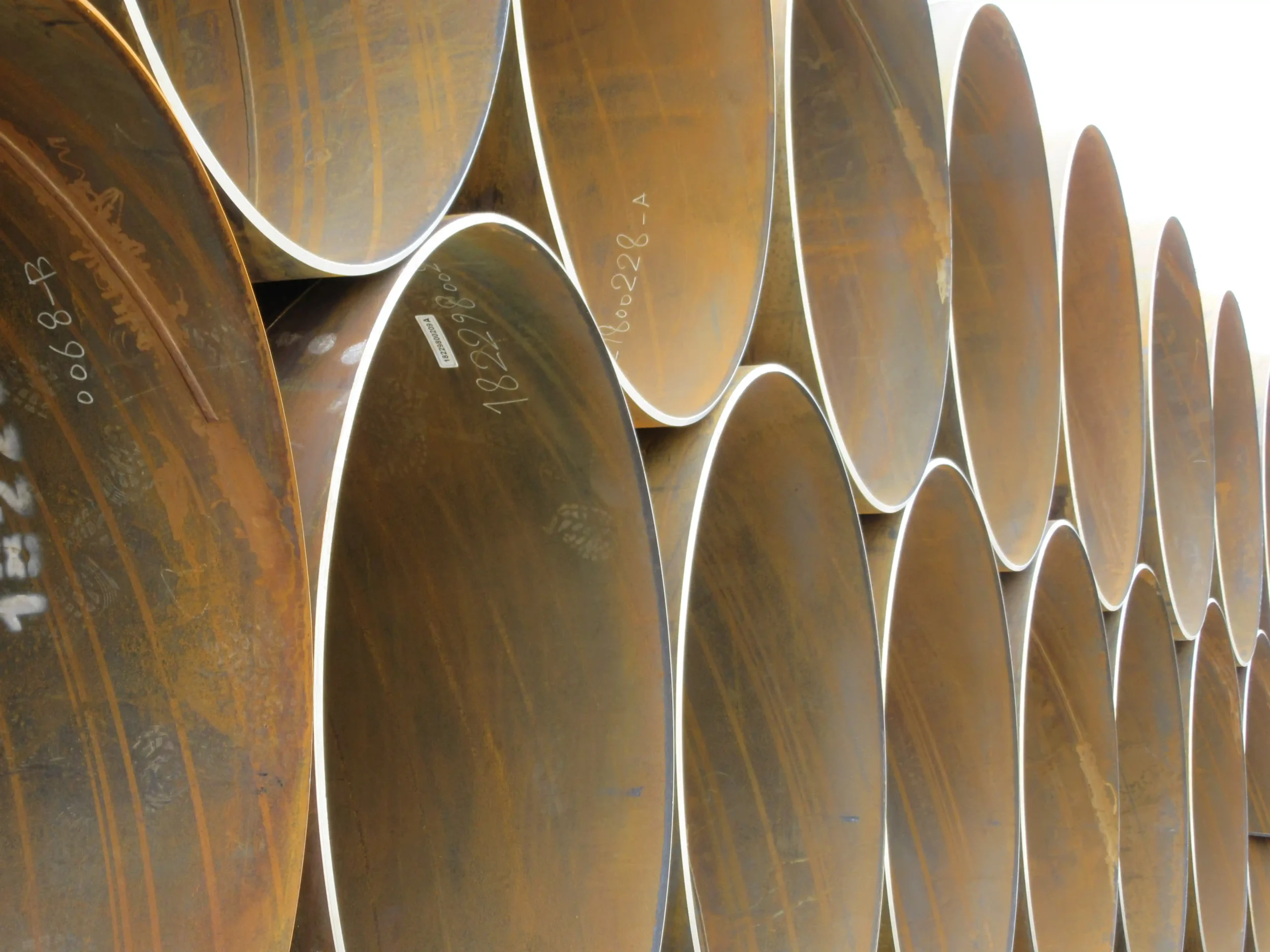
Conclusion Welded and spiral steel pipes are used in various industries such as oil and gas, petrochemicals, construction, water and wastewater, marine, mining, energy, and automotive due to their unique properties. These pipes serve as key components in industrial and construction projects due to their high resistance to pressure, corrosion, and harsh environmental conditions. The selection of the appropriate type of pipe is of great importance depending on the specific needs of each industry and project. Welded steel pipes, due to their high mechanical strength and weldability, are suitable for applications under pressure and high temperatures. However, they require protective coatings to prevent corrosion. On the other hand, ductile iron pipes have high corrosion resistance and a long lifespan but are heavy and expensive. Polyethylene and PVC pipes, due to their light weight, corrosion resistance, and lower cost, are more suitable for applications with lower pressure and under normal conditions. The choice of pipe depends on the specific needs of the project, environmental conditions, and budget. Welded steel pipes, due to their high mechanical strength and weldability, are suitable for various water transfer applications. However, issues related to corrosion, sedimentation, and chemical reactions can affect the quality of the transferred water. The use of protective coatings, periodic maintenance and cleaning of pipes, and control of incoming water quality can help maintain water quality and prevent potential problems. By following these guidelines, it can be ensured that welded steel pipes are used optimally in water transfer systems without negatively affecting water quality.
